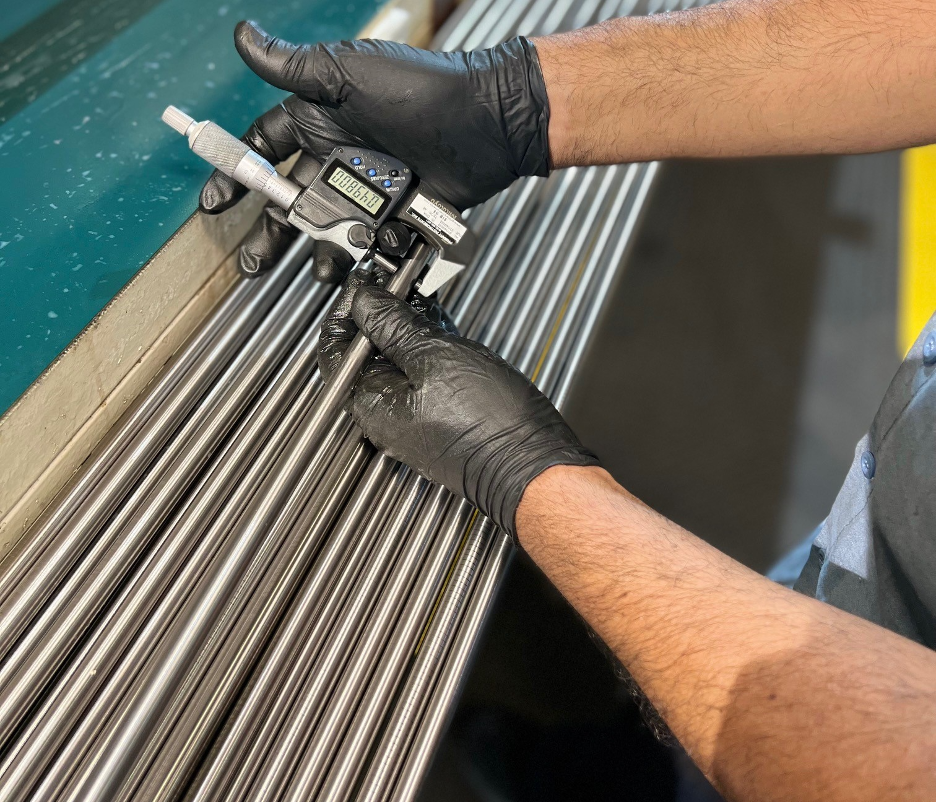The aerospace sector encompasses a wide range of industries, including commercial airlines, military aviation, and space exploration. In this highly demanding field, safety and efficiency are of paramount importance.
One crucial factor that plays a significant role in ensuring both safety and efficiency is tensile strength. Tensile strength refers to the ability of a material to resist breaking under tension. In the aerospace sector, where materials are subjected to extreme forces and conditions, understanding and utilizing tensile strength is vital.
Below, this aerospace metal supplier in Philadelphia, Pennsylvania is going to discuss the importance of tensile strength when it comes to aerospace manufacturing.
The Importance of Tensile Strength in Ensuring Safety
In the aerospace sector, safety is non-negotiable. The lives of crew members and passengers depend on the structural integrity of the aircraft. Tensile strength plays a crucial role in ensuring the safety of aerospace components.
When an aircraft is subjected to various forces, such as acceleration, turbulence, and vibrations, materials with sufficient tensile strength can withstand these stresses without failure.
This is particularly important in critical areas such as the wings, fuselage, and landing gear, where even a small failure can have catastrophic consequences. By using materials with high tensile strength, aerospace engineers can design safer and more reliable aircraft.
Furthermore, tensile strength is vital in preventing fatigue failure. Over time, repeated loading and unloading can cause materials to weaken and eventually fail. In the aerospace sector, where aircraft endure thousands of flight cycles, materials with high tensile strength can better withstand these cyclic forces, reducing the risk of fatigue failure.
By understanding the importance of tensile strength, aerospace engineers can select materials that exhibit superior resistance to fatigue and ensure the long-term safety of aircraft.
How Tensile Strength Impacts Efficiency in Aerospace
In addition to safety, efficiency is a key consideration in the aerospace sector. Aircraft manufacturers and operators are constantly seeking ways to reduce fuel consumption, improve performance, and increase payload capacity.
Tensile strength plays a significant role in achieving these objectives. Aerospace metal suppliers in Philadelphia, Pennsylvania can produce stronger materials that have the potential to be lighter, which allows for a reduction in aircraft weight. This, in turn, leads to decreased fuel consumption and increased operational efficiency.
By utilizing materials with high tensile strength, aircraft manufacturers can also design more streamlined and aerodynamic structures. Reduced weight and improved aerodynamics contribute to increased speed and reduced drag, which improves fuel efficiency. Moreover, high tensile strength materials allow for the construction of thinner and lighter components, which further contributes to overall weight reduction and increased efficiency.
Tensile Strength Testing Methods in the Aerospace Industry
Ensuring the tensile strength of aerospace materials requires rigorous testing methods. There are various techniques employed in the aerospace industry to evaluate the tensile strength of materials.
One commonly used method is the tensile test, also known as the pull test. In this test, a sample of the material is subjected to tension until it breaks. The force and elongation are measured, allowing engineers to determine the material’s ultimate tensile strength, yield strength, and other important properties.
Another widely used testing method is the stress-strain curve analysis. By plotting the relationship between stress and strain, engineers can obtain valuable information about the material’s behavior under tension. This analysis helps determine the material’s elastic modulus, yield point, and ultimate tensile strength.
Furthermore, non-destructive testing methods, such as ultrasonic testing and radiographic inspection, are employed to detect defects and flaws in aerospace materials without causing damage. These techniques allow aerospace metal suppliers in Philadelphia, Pennsylvania to determine the quality of their materials, ensuring they meet the required tensile strength specifications.
Factors Influencing Tensile Strength in Aerospace Materials
Several factors influence the tensile strength of aerospace materials. First, the composition of the material plays a significant role in determining its tensile strength. Metals such as aluminum, titanium, and steel are commonly used in the aerospace sector due to their excellent strength-to-weight ratios. These materials can be alloyed with other elements to enhance their tensile strength and other desirable properties.
The manufacturing process also affects the tensile strength of aerospace materials. Heat treatment, cold working, and other processing techniques can alter the microstructure of the material, resulting in changes in its tensile strength. Additionally, factors such as grain size, impurities, and defects within the material can influence its tensile strength.
Environmental factors must also be considered. Aerospace materials are exposed to a wide range of temperatures, pressures, and corrosive environments. These conditions can significantly impact the tensile strength of the material. With that said, it is crucial to select materials that can withstand the specific environmental conditions they will encounter during their service life.
Looking for an Aerospace Metal Supplier in Philadelphia, Pennsylvania?
When it comes to sourcing aerospace materials with high tensile strength, Banner Industries is your trusted partner. As the top-rated Aerospace metal supplier in Philadelphia, Pennsylvania, we offer a comprehensive range of high-quality materials that are specifically designed for aerospace applications.
Whether you are looking for aluminum alloys, titanium alloys, or high-strength steels, our team of experts will provide you with the right materials to ensure the safety and efficiency of your aerospace projects. Contact us today at (800) 950-3652 to get started.







